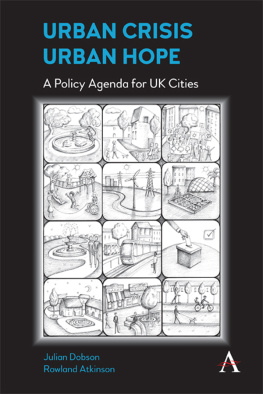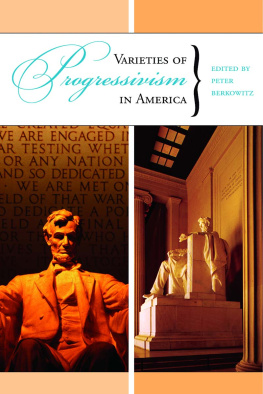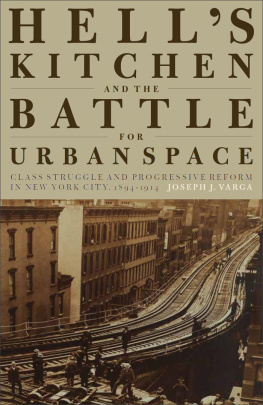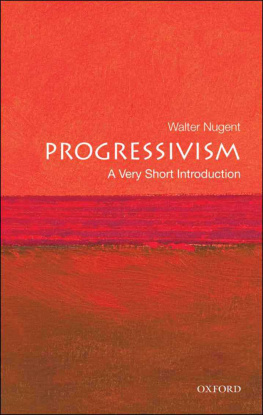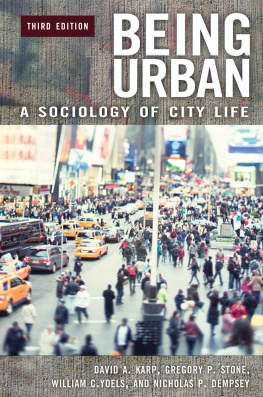Routledge Revivals
Reform in New York City
Originally published in 1991, Reform in New York City provides an interpretive synthesis of urban progressivism and provides a comprehensive historical look at progressivism in New York City. The book argues that urban reform still poses a major historiographical challenge to historians working today and that there is limited analysis of the social and political action that characterised turn of the century New York. The book addresses the conceptual approaches, interpretive differences, and thematic emphasis of the urban reform agenda.
Reform in New York City
A Study of Urban Progressivism
By Augustus Cerillo
First published in 1991
by Garland
This edition first published in 2018 by Routledge
2 Park Square, Milton Park, Abingdon, Oxon, OX14 4RN
and by Routledge
711 Third Avenue, New York, NY 10017
Routledge is an imprint of the Taylor & Francis Group, an informa business
1991 Augustus Cerillo, Jr
All rights reserved. No part of this book may be reprinted or reproduced or utilised in any form or by any electronic, mechanical, or other means, now known or hereafter invented, including photocopying and recording, or in any information storage or retrieval system, without permission in writing from the publishers.
Publisher's Note
The publisher has gone to great lengths to ensure the quality of this reprint but points out that some imperfections in the original copies may be apparent.
Disclaimer
The publisher has made every effort to trace copyright holders and welcomes correspondence from those they have been unable to contact.
A Library of Congress record exists under LCCN: 91010854
ISBN 13: 978-1-138-49135-9 (hbk)
ISBN 13: 978-1-351-03318-3 (ebk)
M ODERN A MERICAN HISTORY
New Studies and Outstanding Dissertations
Edited by
Robert E. Burke
and
Frank Freidel
A Garland Series
REFORM IN NEW YORK CITY
A Study of Urban Progressivism
Augustus Cerillo, Jr.
Garland Publishing, Inc.
New York &c London
1991
1991 by Augustus Cerillo, Jr.
All rights reserved
Library of Congress Cataloging-in-Publication Data
Cerillo, Augustus
Reform in New York City : a study in urban progressivism /
Augustus Cerillo, Jr.
p. cm. (Modern American history)
Thesis (Ph. D.)Northwestern University, 1969.
Includes bibliographical references and index.
ISBN 0-8240-1893-1 (alk. paper)
1. New York (N.Y.)Social conditionsCase studies. 2. Progressivism
(United States politics)HistoryCase studies. 3.
Urban policyNew York (N.Y.)HistoryCase studies. I. Title.
II. Series.
HN80.N5C45 1991
303.48'4'097471dc20
91-10854
Design by Marisel Tavarez
For Dee
Lauri and Mike
The publication of my doctoral dissertation on progressivism in New York City some twenty years after it was submitted to the History Department of Northwestern University offers me an opportunity to note some trends in recent writings on early twentieth century urban reform. These competing interpretations had significant implications for historians studying urban reform.
The decade of the 1960s was hardly under way when Robert Wiebe and Gabriel Kolko each published a book focusing on the connection between businessmen and national economic regulation during the progressive era. Although they reached strikingly different conclusions about the nature, power and goals of the business community, they both demonstrated the key role of businessmen in shaping federal legislation regulating business. Their findings suggested possibilities for a fresh examination of who or what social and economic groups exercised the most influence over municipal policymaking.
By the mid-1960s then, the "progressive club" had opened to include, along with Mowry's and Hofstadter's old middle class, Wiebe's middle class "businessmen on the make," Hay's and Kolko's upper class elites and Huthmacher's immigrant and working class leaders. Such was the historiographical ferment surrounding progressive scholarship when I began my study of progressivism in New York City. I sought to discover what reform issues engaged New Yorkers in the first two decades of the new century and, in light of the debate over the origins and content of progressivism, to search for who and what groups played the leading roles in formulating and implementing Gotham's reform agenda.
At the time I began my research, Wiebe was already working on The Search For Order, which, after its publication in 1967, quickly became the most comprehensive and influential formulation of what others would label the "organizational" interpretation of progressivism. Appearing in print when I was well into the writing of "Reform in New York City," The Search For Order helped me sharpen the conceptual framework of my
Since the late 1960s historians have continued the search for the origins, content and meaning of progressivism, and in the process have published scores of books and articles on the subject. There are a number of excellent essays that survey, interpret and critique this literature and I need not duplicate their content here Instead, for the remainder of this short introduction I will discuss a few historiographical trends that I believe have pertinence to the themes of this book as well as the study of urban progressivism.
During the 1970s and early 1980s, historians who continued to search for the political impulses of progressivism showed just how diverse were the sources of reform. In a number of essays and an important book, John Buenker fleshed out Huthmacher's earlier sketch of the role of the "urban foreign stock working class" in reform. He insisted immigrant workers, like the middle and upper classes, organized to protect and pursue their interests. Their political representatives supported governmental measures designed to regulate business, especially utilities, assure a fair tax rate, democratize the political system and provide for social welfare; they fought against certain "cultural reforms" such as Sunday closing and anti
Huthmacher's and Buenker's stress on the urban workers' support for reform was reinforced by the scholarship of a number of urban historians who mounted a full-scale reevaluation of urban bosses and machines. Focusing on the functions of the political machine, and in some cases even deemphasizing the traditional distinction between bossism and reform, these revisionists argued that the political boss at times supported, if he did not initiate, a variety of reform measures. Some of these historians even transformed old villains (bosses) into heroes (reformers) who championed the cause of the urban masses. Bosses, these urban scholars pointed out, gave welfare services to the poor, centralized decision making in a fragmented and disorderly city, supported development projects, extended democracy to the grassroots and fended off Yankee-Protestant middle-class reform assaults on immigrant morality. Of course, not all historians accepted the revisionists' overly "romantic" view of city bosses, and more recently some historians have challenged the historical accuracy and conceptual soundness of the functional view of the boss and political machine. Nevertheless, this scholarship forces historians of urban progressivism to take into account the part bosses played in the structure of urban rule, the reform process and more generally the politics of the emerging modern city.


